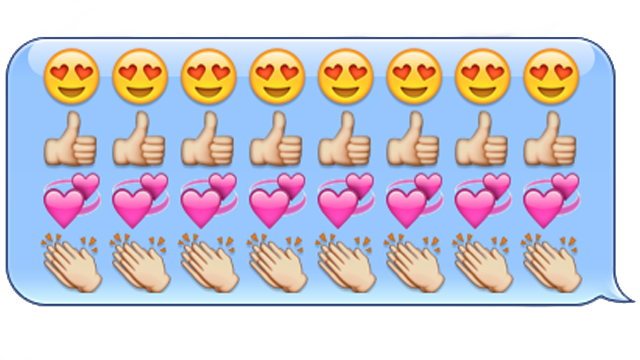 We all have our vices. Singing Mariah songs at karaoke even though your voice is just okay. Pretending to be your twin for extra samples at Costco. Drinking Long Island iced teas when you know better. These bad habits provide a sense of balance to your other life as a responsible adult that is only late to work sometimes and takes a shower almost every day. But sometimes these inclinations get out of control and weave into obsession territory.
We all have our vices. Singing Mariah songs at karaoke even though your voice is just okay. Pretending to be your twin for extra samples at Costco. Drinking Long Island iced teas when you know better. These bad habits provide a sense of balance to your other life as a responsible adult that is only late to work sometimes and takes a shower almost every day. But sometimes these inclinations get out of control and weave into obsession territory.
When Instagram first hit the scene, I was disinterested. Why would I want to be inundated with a constant stream of amateur photography? Facebook was bad enough. A few stubborn weeks later, I got off my high horse long enough to see the value in seeing the world through my loved ones' eyes. Gazing at some piece of litter made beautiful by a friend across the world made me feel closer to her and provided a sense of communal living that transcended geography and time.
Soon, I was 'gramming every day and even taking part in "throw back Thursdays." Look at my feet in the sand next to a bottle of whiskey! And this photo of me in a Greek costume as a toddler! And this good hair day I'm having! Harmless voyeurism and narcissism! And then things got dark. "Ugh, I haven't gotten to 11 likes yet! What is wrong with everyone?!" I would exclaim, wondering why this view of the SF skyline or that double rainbow wasn't deserving of digital love. Then I would like it myself. A shameful act and a shameless bid to reach an arbitrary milestone that meant validation. My compulsive "like" maintenance was starting to disturb me. I could picture myself as the star of a really boring episode of Intervention.
So how did this fun app full of pretty pictures shape-shift into an ugly addiction? The underlying source is in our DNA; it's human nature to want to be accepted by our community, a characteristic that has been manipulated since Facebook's thumbs-up came into our lives. Even the most confident person is susceptible to placing too much importance on the trade of approval and rejection in the social media world. Whether you admit it or not, there is some sting in getting only one or two engaged comments or likes on an impassioned status update or a photo of your new haircut that you're not comfortable with just yet. In the end, we just want to be approved of by our peers and feel a little less alone.


